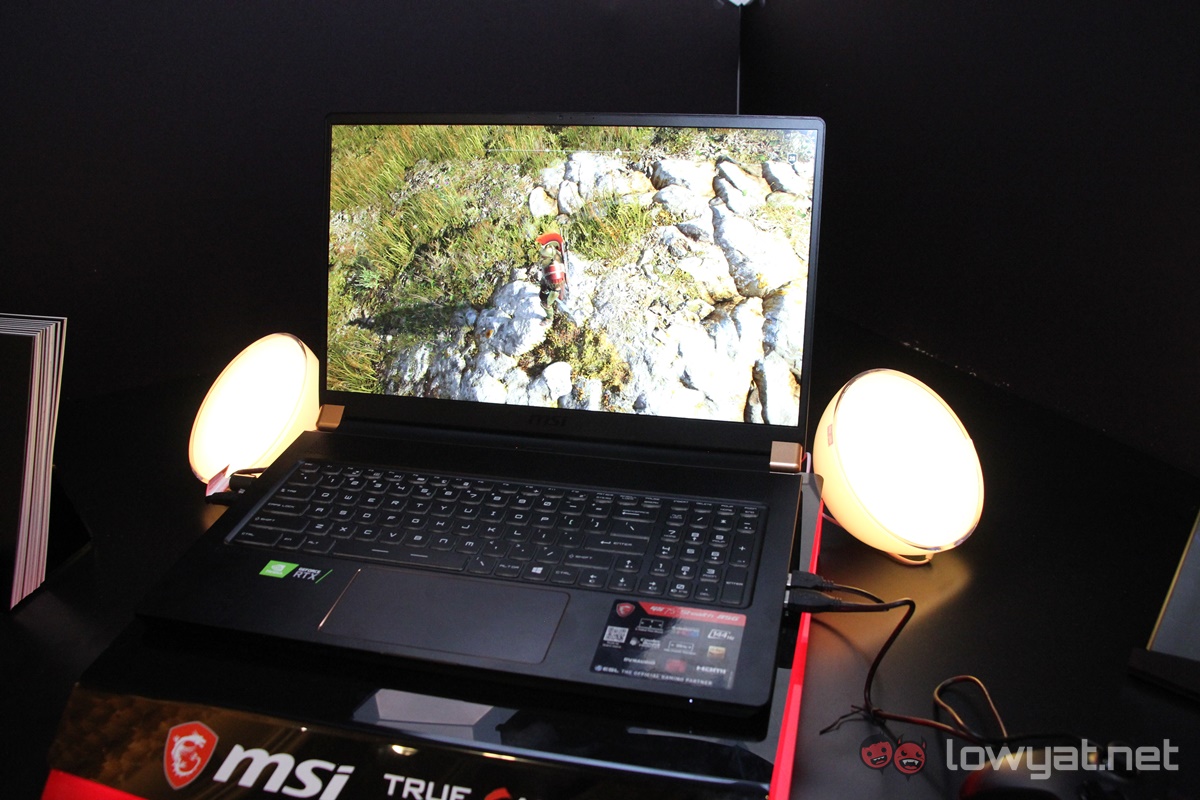MSI’s announcement of the GS75 Stealth at CES 2019 effectively signaled the arrival MSI notebooks powered by NVIDIA’s GeForce RTX GPU technology. More than that, the notebook is just one of a handful of thin and light GeForce RTX-powered notebooks on the market. To that end, I was fortuitous enough to be able to spend some time with the notebook.
If you’ve ever had a chance to see or place your hands on MSI’s GS65 Stealth gaming notebook that launched last year, you’ll immediately see that the GS75 Stealth just a bigger and souped up version of that notebook. Despite its size, however, the notebook didn’t actually feel that heavy in my hands. Don’t get me wrong, it still had a weight to it, but at 17.3-inches, it didn’t feel cumbersome.
There’s also the overall build and chassis to take into consideration. Compared to the GS65 Stealth, the GS75 Stealth actually feels more solid, sturdier even. It doesn’t flex as much, and even its 17.3-inch display doesn’t twist and creak. Despite my vigorous attempts in testing its threshold.
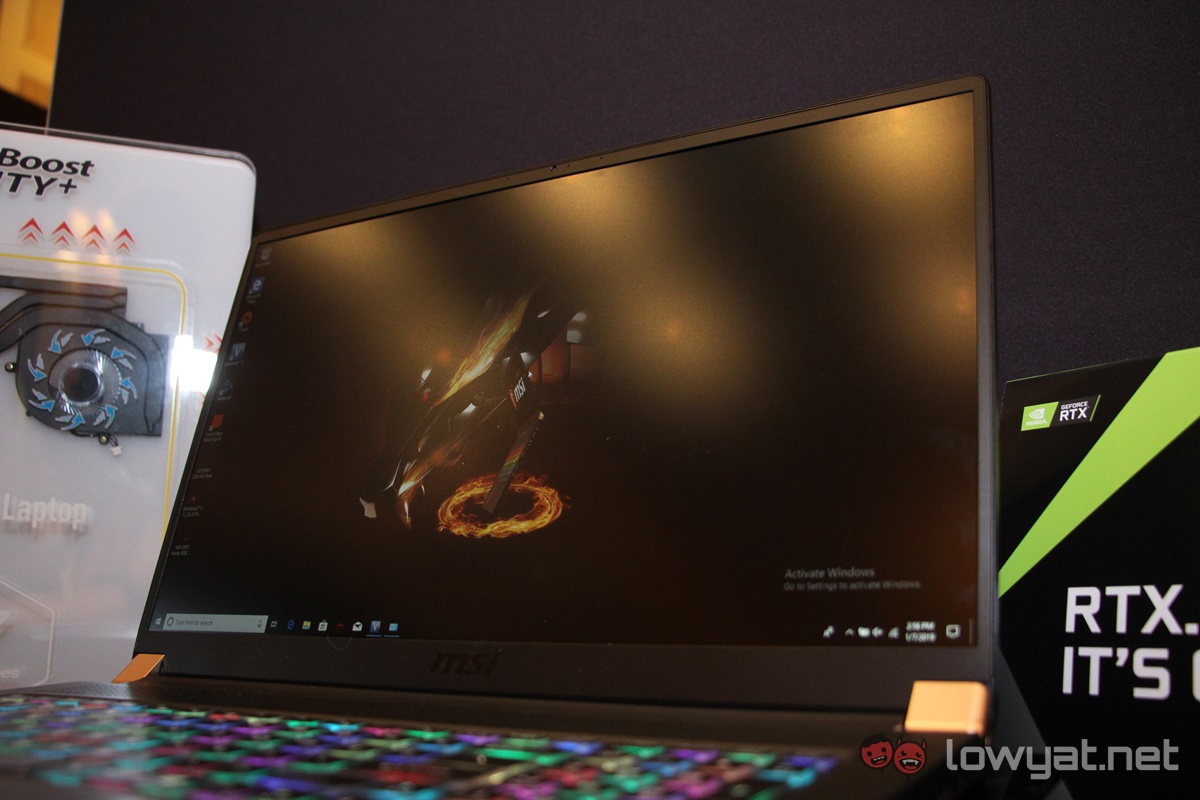
Speaking of the display, the GS75 Stealth’s Full HD display is another minor yet important engineering achievement for MSI. Sporting a four-sided bezel design with a thickness of just 5.2mm. Specifically, the three bezels at the side and the top of the display are thin, while the bezel at the bottom is a little bit thicker.
It doesn’t end there either. Thanks to the 17.3-inch Full HD display’s 144Hz refresh rate, my viewing experience felt really smooth, and didn’t hurt my eyes as much. Unfortunately, there’s still no G-Sync support built into the display. As I said before, it does feel like a wasted opportunity, especially when competitors such as ASUS have long implemented the anti-screen tearing technology into its own gaming notebooks for some time now.
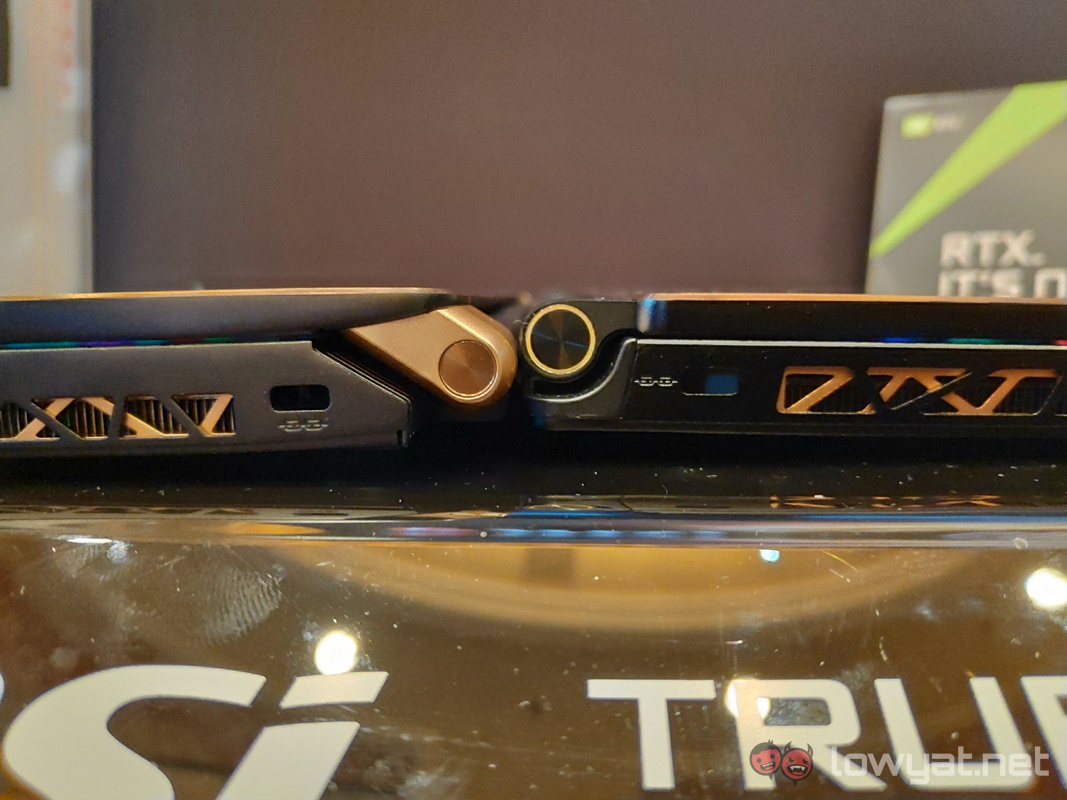
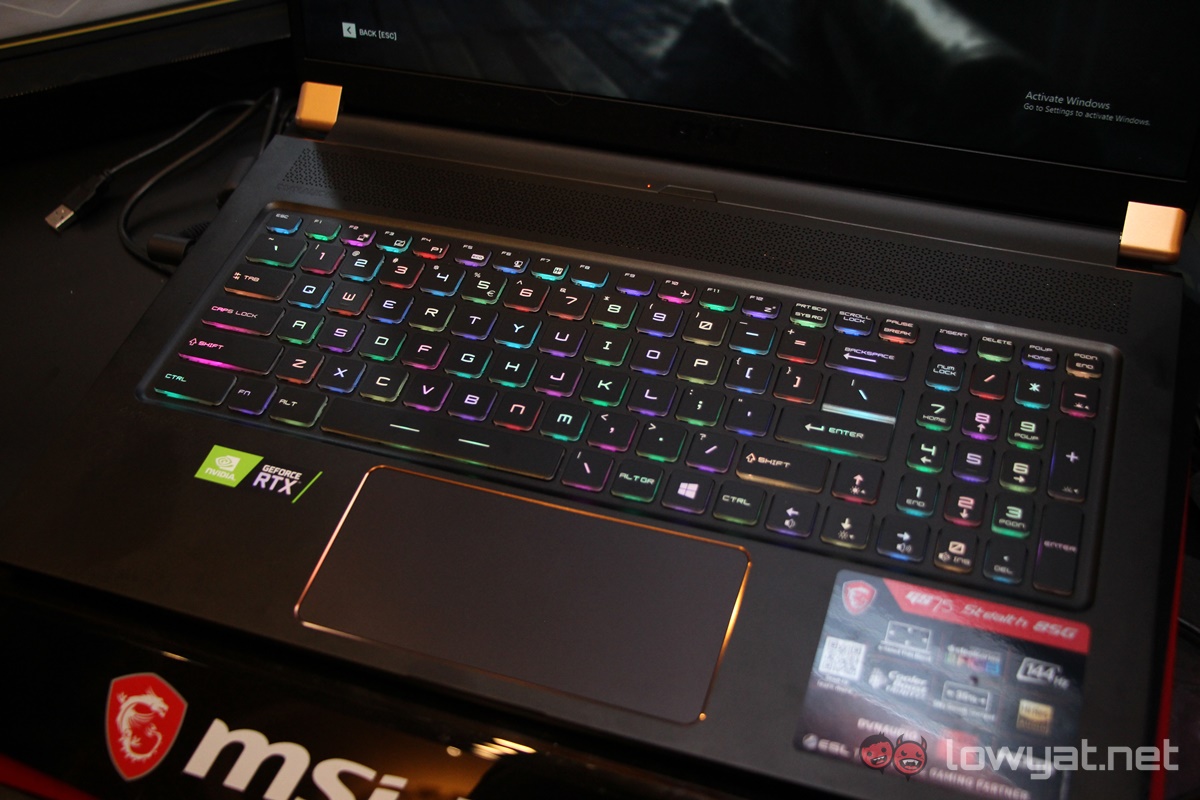
As I mentioned in my earlier report, one of the more meaningful improvement to the structural integrity of the GS75 Stealth are the hinges. Once again, by comparison to the GS65 Stealth, the new hinges look more solid, and as such prevent the display from flexing too much.
On the surface of the base, you still get that same per-key RGB keyboard, which is provided by Steel Series. What one will notice, however, is the larger-than-average trackpad that MSI has chosen to install on the GS75 Stealth. Specifically, it’s actually 35% larger than the trackpad on the GS65 Stealth, and as an extra added bonus, it now come with more than 10 multi-finger gesture controls.
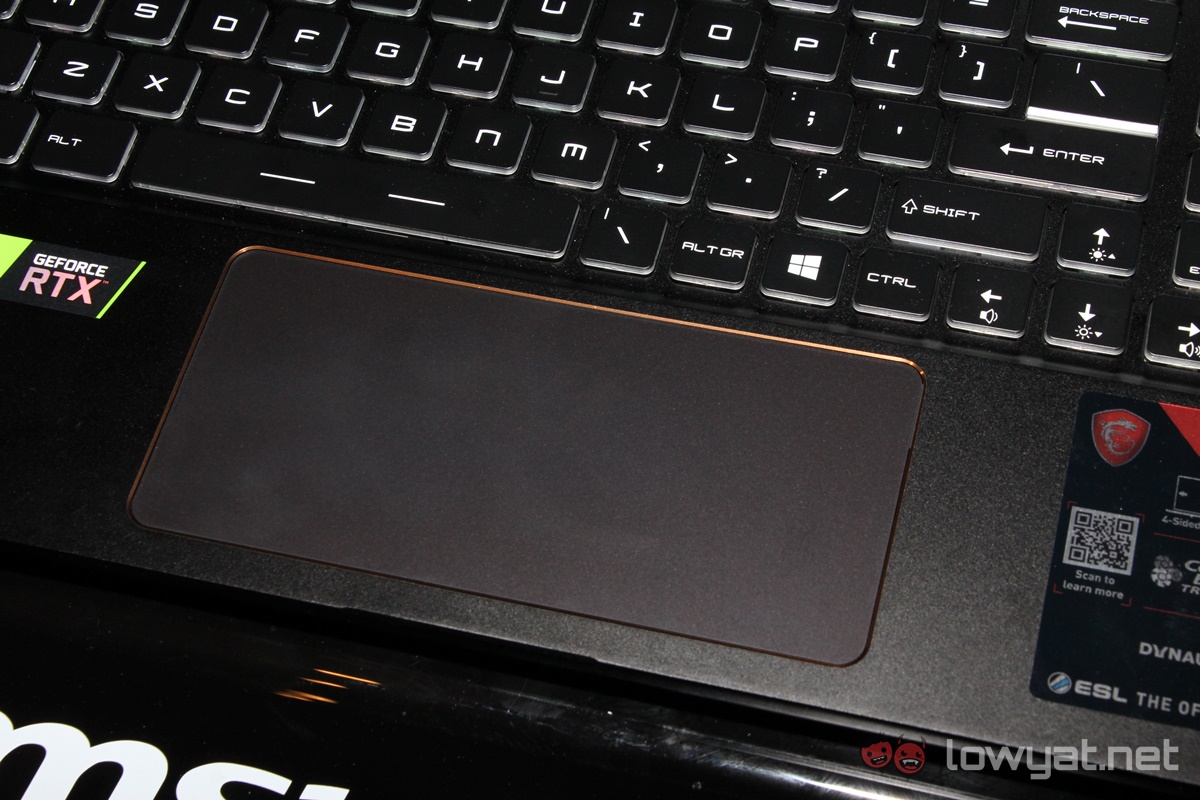
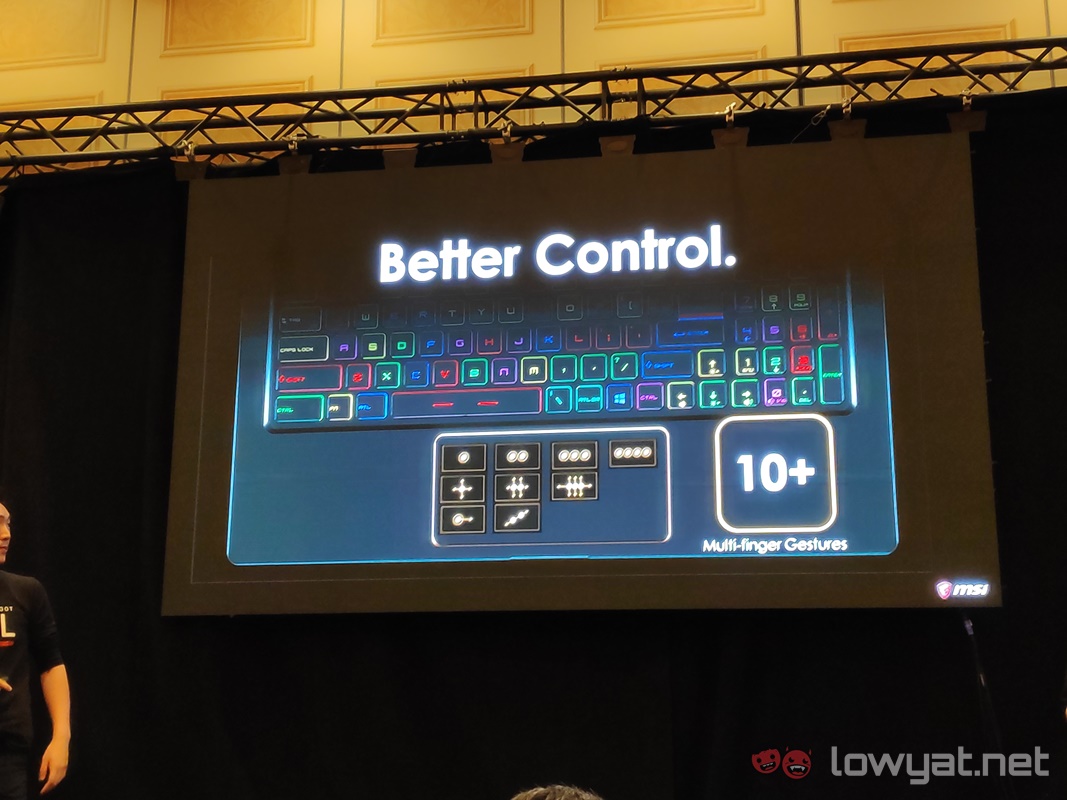
Internally, the GS75 Stealth that I spent time was housing an Intel Core i9-8950HK CPU, 32GB DDR4 RAM, and last but not least, NVIDIA’s new GeForce RTX 2080 Max-Q discret GPU. The time I did manage to get with it, I played the pre-loaded Battlefield V and Assassin’s Creed Odyssey titles.
Unsurprisingly, the notebook’s Cooler Boost Trinity+ cooling solution was clearly at full whack at this point. I was however, impressed that the decibel levels of the GS75 Stealth didn’t reach deafening level despite operating under a full load. Heat dissipation is another plus factor; at no point during my time with the notebook did I ever feel the dreaded heat on the palm rest or the keyboard of the GS75 Stealth.
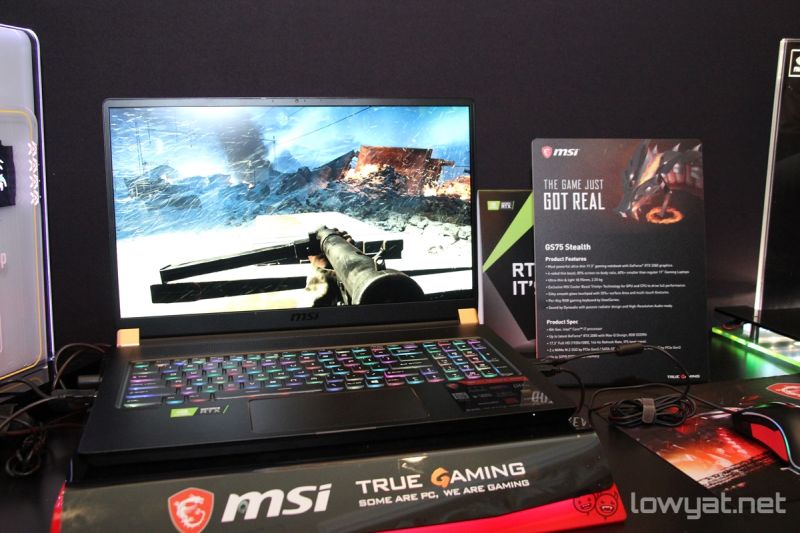
For what it’s worth, the MSI GS75 Stealth doesn’t stray very far from the original design of its predecessor. At the same time, the brand has improved upon said design, making it feel more premium in certain aspects, as well as areas that the original GS65 Stealth couldn’t.
On that note, we are definitely looking forward to putting this notebook through its paces, provided that MSI is willing to seed us with a full-fledge unit. That said, MSI hasn’t officially provided an official release date of the GS75 Stealth.
Follow us on Instagram, Facebook, Twitter or Telegram for more updates and breaking news.


